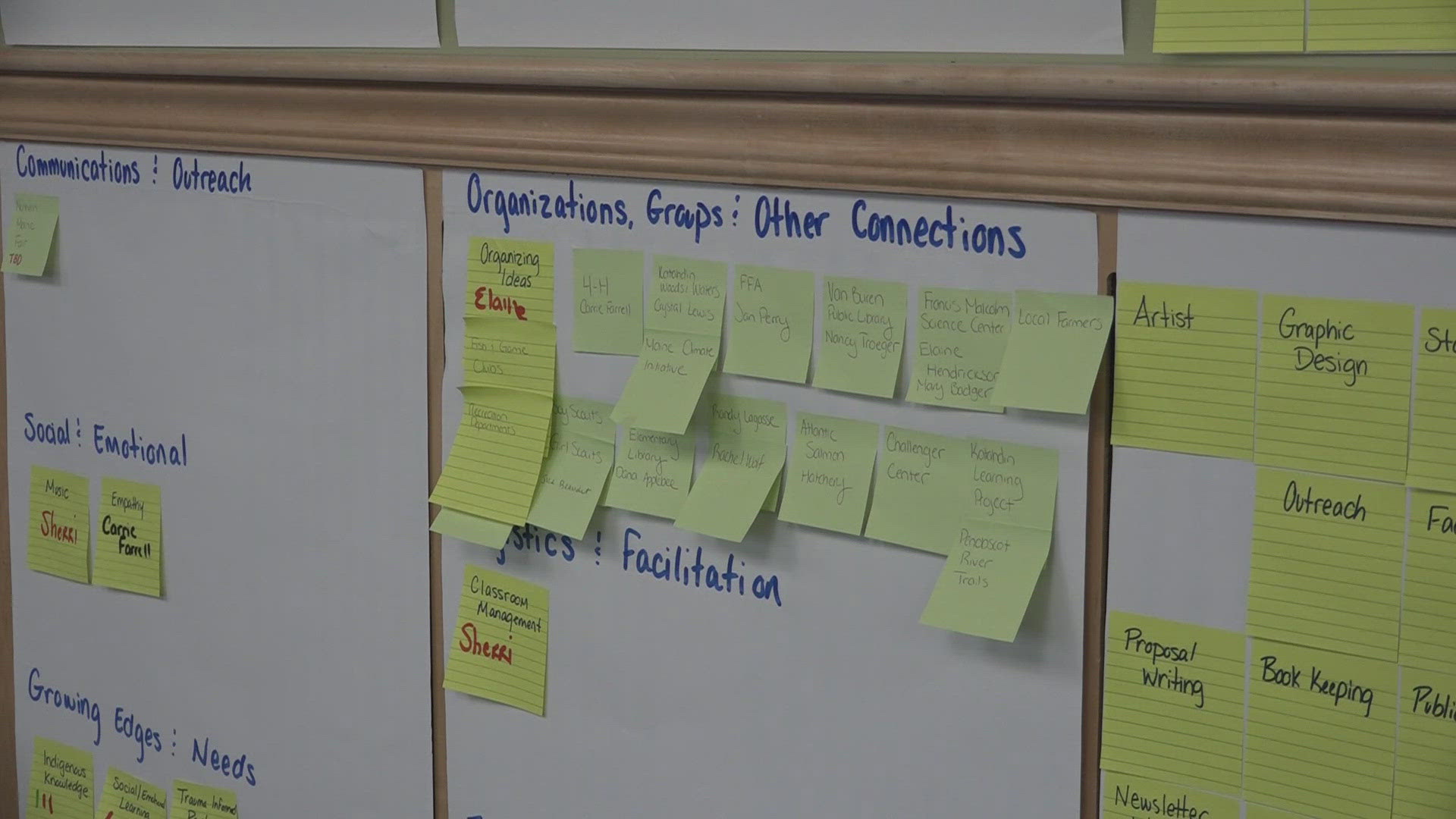ORONO, Maine — Educators from across the state gathered in August to discuss ways to teach kids about climate research as well as the impacts of climate change.
The Gulf of Maine Research Institute has been coordinating the Connected Learning Ecosystems gathering for the past eight years.
“[It's about] really empowering the next generation of climate stewards through connecting learning across contexts in and out of the classroom,” Molly Auclair, senior specialist of Connected Learning Ecosystems at GMRI, said.
This year's event was held Aug. 19 at the Wells Conference Center on the University of Maine campus in Orono, where more than 50 teachers, librarians, and education leaders brainstormed in small groups to plan educational activities aimed at helping students better understand the changing climate.
“I just get so excited, and I get filled up as a teacher by being at these events,” Colleen Maker, a biology teacher at Washington Academy High School, said.
Educators said the gathering and other events hosted by GMRI have given them the ability to connect students with real climate research.
“When you link these topics to actions that students can take, it's well-received, and it helps students feel like they have agency,” Sarah Kearsley, a STEM educator at Roberts Farm Experiential Learning, explained.
For Maker, that means her students are getting the chance to gather climate-related data on things like sea levels in their community.
“The data they're collecting is authentic. It's from their community, and they're reporting it out to scientists who care," Maker said. "It makes it real it connects them [the students] to their community and their state."
While taking a break from a group discussion about climate resiliency, Cumberland County Public Library Outreach Coordinator Racheal Sylvester said she's using connections with local organizations made at the event to supply kids with hiking backpacks and other outdoor equipment to get them into nature and see firsthand the impacts of climate change.
“It helps foster those sparks with kids, like what's your interest, what's your inspiration, what is something you're passionate about,” Sylvester said.
Sylvester added that events like these not only help educators like her spark creation in kids, but also inspires her to continue teaching them about important topics like climate change.
“Just being to partner with people and hearing their success stories and having that emotional and community aspect is really uplifting," Sylvester said. "So, things may not look great, but we can make them better."
Officials with GMRI said they would be hosting another event in February for educators to further discuss ways to implement climate change education in the classroom.

